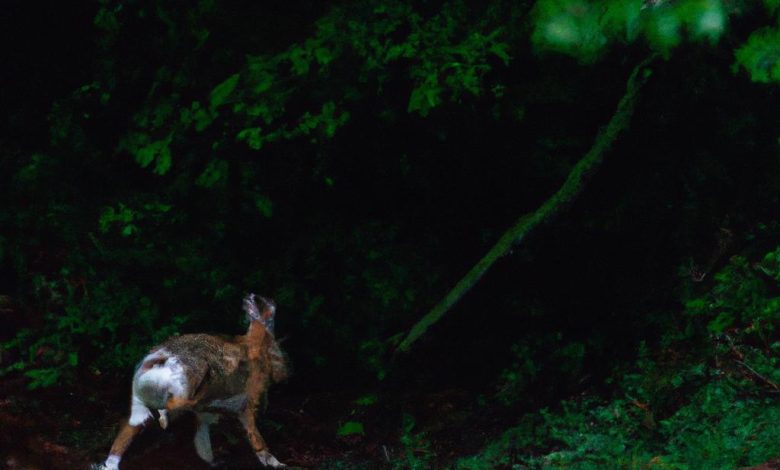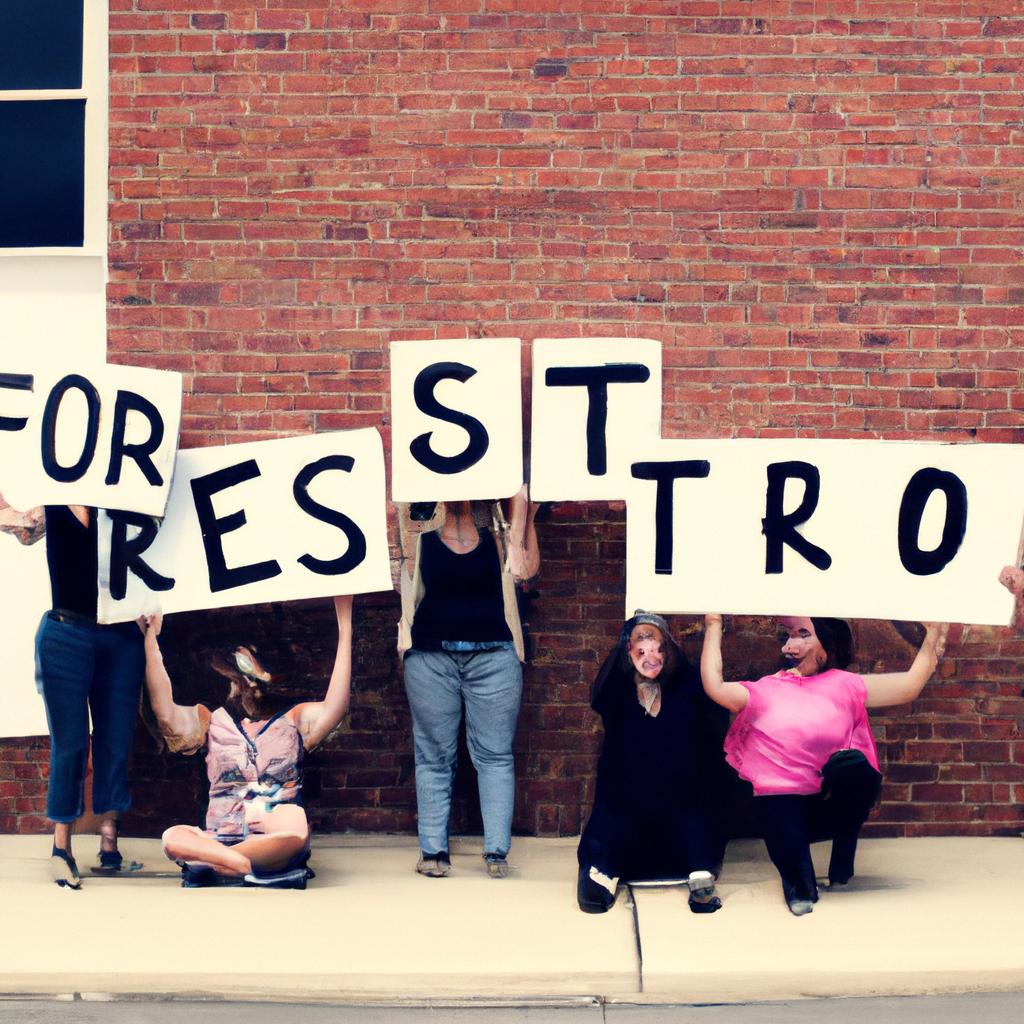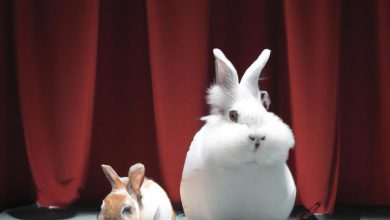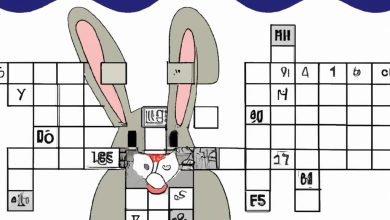Run Rabbit Run Racist Song: The Controversy Explained

Have you ever heard the catchy tune “Run Rabbit Run” and wondered about its historical significance? While the song is often associated with the British wartime era, it has recently come under fire for its controversial lyrics. In this article, Rabbitfact‘ll explore the history of “Run Rabbit Run” and dissect the racism controversy surrounding it.
First, let’s take a quick trip down memory lane. “Run Rabbit Run” was written by Noel Gay and Ralph Butler in 1939 and became an instant hit during World War The song was intended to boost morale among British troops and civilians during the war effort, and it succeeded in doing so. Its catchy melody and playful lyrics made it a staple in the British music scene for years to come.
However, as times have changed, so has our understanding of what is acceptable in music. In recent years, “Run Rabbit Run” has been criticized for its racist lyrics, particularly the line “shoot that bloody hare.” Some argue that this phrase promotes violence against people of color, as “hare” was once used as a derogatory term for black people.
The debate over the song’s racism has sparked heated discussions in the media and online. Some defend the song as a harmless relic of its time, while others argue that it perpetuates harmful stereotypes and should be banned.
Why is it important to discuss this issue? As with any controversy, it’s important to understand the context and history behind it. By examining the controversy surrounding “Run Rabbit Run,” we can gain insight into larger discussions about race, music, and culture. So, let’s dive deeper into the debate and explore all sides of the issue.
Understanding the Song

Lyrics Analysis
To understand the controversy surrounding “Run Rabbit Run,” it’s essential to analyze the song’s lyrics. The tune is a playful call-and-response between two characters, with one urging the other to “run rabbit, run, run, run” to escape being caught and eaten. While the song may seem innocent at first glance, some have taken issue with the line “shoot that bloody hare,” which they argue perpetuates harmful stereotypes and promotes violence against people of color.
Historical Context
To fully understand the meaning behind “Run Rabbit Run,” it’s crucial to examine the historical context in which it was written. The song was composed in 1939, during the early days of World War At the time, Britain was facing a dire threat from Nazi Germany and was struggling to maintain morale among its troops and civilians. “Run Rabbit Run” was intended to be a lighthearted and catchy tune that would lift the spirits of the British people during this difficult time.
Interpretation of the Song’s Meaning
The interpretation of “Run Rabbit Run” has evolved over time, with some arguing that the song is fundamentally racist, while others see it as a harmless relic of its time. Some have pointed out that the song’s lyrics can be interpreted in different ways, depending on one’s perspective. For example, while some see the line “shoot that bloody hare” as promoting violence against people of color, others argue that the line is simply a reference to the hunting of rabbits and has no racial connotations.
Overall, the meaning of “Run Rabbit Run” is complex and multifaceted, with different interpretations depending on one’s perspective and historical context. As we continue to examine the controversy surrounding the song, it’s essential to keep these nuances in mind and approach the issue with an open mind and a willingness to learn.
The Racism Controversy

Overview of the Controversy
The debate over the racism in “Run Rabbit Run” has been ongoing for years. While some argue that the song is simply a product of its time, others believe that it perpetuates harmful stereotypes and promotes violence against people of color. The controversy has gained renewed attention in recent years, with many calling for the song to be banned.
Criticisms of the Song
One of the main criticisms of “Run Rabbit Run” is its use of the phrase “shoot that bloody hare.” Some argue that this phrase is a racist reference to black people, as “hare” was once used as a derogatory term for people of color. Others argue that the line is simply a harmless reference to hunting and has no racial connotations.
Another criticism of the song is its portrayal of the enemy as rabbits. Some argue that this perpetuates harmful stereotypes about animals, as rabbits have long been associated with cowardice and weakness. Others argue that the portrayal of rabbits as the enemy is simply a lighthearted nod to the song’s playful tone.
Defenders of the Song
Despite the controversy surrounding “Run Rabbit Run,” there are still many who defend the song as a harmless relic of its time. They argue that the song was written during a different era, and that its lyrics should be viewed in that context. Some also argue that the song has a positive message of resilience and perseverance, and that its catchy melody and playful lyrics are a testament to the power of music to uplift and inspire.
Regardless of one’s opinion on the issue, it’s clear that the controversy surrounding “Run Rabbit Run” is far from over. As we continue to grapple with larger discussions about race and culture, it’s important to examine the complexities of the debate and consider all sides of the issue.
Impacts of the Song
The controversy surrounding “Run Rabbit Run” raises questions about the impact that music can have on society. Here are some key areas where the song’s impact has been felt:
Effects on Society
Music is often seen as a reflection of society, and “Run Rabbit Run” is no exception. The song’s popularity during wartime reflects the mood and attitudes of the time. However, as society has evolved, so has our understanding of what is acceptable in music. The debate over the song’s racism highlights the need for ongoing conversations about race, equality, and representation.
Social Implications
The debate over “Run Rabbit Run” also has broader social implications. The song’s use of racist language contributes to a larger culture of racism and discrimination. By promoting harmful stereotypes, the song perpetuates harmful attitudes that can have real-world consequences. It’s important to recognize that music is not created in a vacuum and that our choices as listeners and creators have a real impact on the world around us.
Psychological Effects
Finally, the controversy surrounding “Run Rabbit Run” also has psychological effects. For those who have experienced racism or discrimination, hearing the song can be triggering and harmful. It’s important to recognize the emotional impact that music can have on individuals and communities and to take steps to ensure that everyone feels safe and included.
In conclusion, the impact of “Run Rabbit Run” goes beyond just its catchy melody and playful lyrics. The controversy surrounding the song raises important questions about the impact of music on society, social implications, and psychological effects. By examining the impact of this song, we can gain insight into larger discussions about race, equality, and representation in music.
Responses to the Song
The controversy surrounding “Run Rabbit Run” has sparked various responses from different groups.
Reaction of the Public
Many members of the public have expressed their opinions on the matter, with some calling for a ban on the song and others defending its historical significance. Social media platforms have been flooded with debates and discussions on the topic, with both sides presenting their arguments. The public’s response has been mixed, reflecting the complexity of the issue at hand.
Political Response
The controversy surrounding “Run Rabbit Run” has not gone unnoticed by politicians. In 2020, the song was banned from being played on BBC Radio due to its potentially offensive content. The decision was met with criticism from some who argued that the ban was an overreaction and that the song should be viewed in its historical context. Nevertheless, the political response to the controversy has been significant, and it remains to be seen whether further action will be taken.
Legal Response
The legal implications of the controversy surrounding “Run Rabbit Run” are unclear. While some have argued that the song’s lyrics could be seen as promoting violence against people of color, there have been no legal challenges to the song as of yet. However, if the controversy continues to gain traction, it’s possible that legal action could be taken in the future. For now, the legal response to the controversy remains minimal.
Conclusion
In conclusion, the controversy surrounding “Run Rabbit Run” is a complex issue that requires careful consideration. While the song may have been intended as harmless entertainment during wartime, its lyrics have come under scrutiny for promoting harmful racial stereotypes.
As we continue to grapple with issues of racism and discrimination in our society, it’s important to examine the media we consume and the messages they perpetuate. By engaging in conversations about controversial songs like “Run Rabbit Run,” we can gain a deeper understanding of how our culture has evolved and what we can do to promote inclusivity and respect.
Here at rabbitfact.com, we strive to provide accurate and informative content about all aspects of the rabbit world. Whether it’s learning about rabbit care, diet, or behavior, we’re committed to sharing the latest information with our readers. We hope this article has shed some light on the controversy surrounding “Run Rabbit Run” and sparked important discussions about race and culture.
Thank you for reading, and we look forward to bringing you more rabbit facts in the future.
Conclusion: So above is the Run Rabbit Run Racist Song: The Controversy Explained article. Hopefully with this article you can help you in life, always follow and read our good articles on the website: rabbitfact.com





